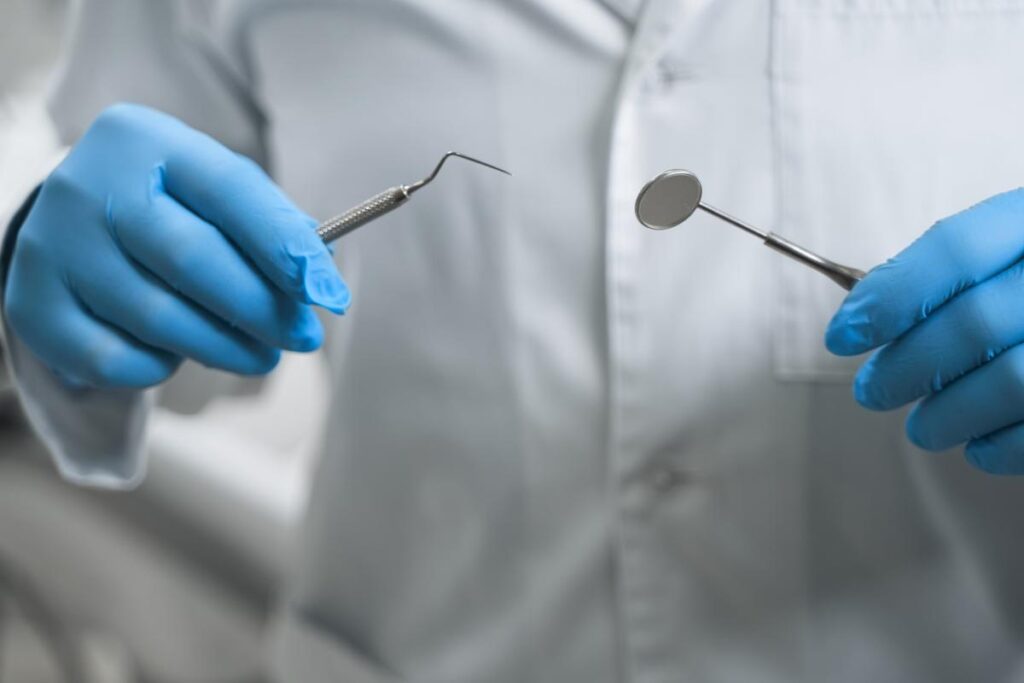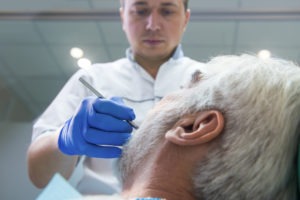The Texas State Board of Dental Examiners (the Board) licenses and regulates dentists, hygienists, and dental assistants to ensure they comply with all applicable laws and rules. As an integral part of its responsibilities under state law, the Board receives and investigates complaints against licensees and initiates disciplinary action if needed. Disciplinary proceedings can seriously affect your professional license. Therefore, if you receive a complaint against your license, we urge you to seek assistance from an experienced dental license defense lawyer.
Potential Sanctions in Disciplinary Cases
When facing disciplinary proceedings before the Board, you can face a spectrum of potential sanctions under 22 Tex. Admin. Code § 107.206, depending on your circumstances. These sanctions include the following, listed in order from the least severe to the most severe:
- Administrative Penalty – An Administrative Penalty is a monetary fine for violations that do not involve direct patient care. Any disciplinary action listed below may also include an Administrative Penalty.
- Remedial Plan – A Remedial Plan is a non-disciplinary action by which the licensee agrees to complete certain actions or practice under certain conditions required by the Board. The licensee also must pay a $500 Remedial Plan fee.
- Warning – A Warning is the least severe disciplinary action.
- Reprimand – A Reprimand is a disciplinary action.
- Probated Suspension – A Probated Suspension is a higher level of disciplinary action that lasts for a specified period, but still allows a licensee to continue practicing dentistry under certain terms and conditions set by the Board.
- Enforced Suspension—An Enforced Suspension is a higher level of disciplinary action that may last days, months, or years. A licensee may not practice dentistry while subject to an Enforced Suspension.
- Revocation – A Revocation is the highest level of disciplinary action the Board can issue. After the Board issues a Revocation, the licensee may no longer practice dentistry. The only way that the person may practice dentistry in the future is to apply for the issuance of a new license and meet all Board requirements.
A Remedial Plan or a Probated Suspension may contain various conditions set by the Board designed to sanction the licensee for the violations that have occurred and prevent such violations from occurring in the future. These conditions may be in the form of an Agreed Order that the licensee and the Board reach to resolve the case. However, an administrative law judge may also impose these conditions following a contested hearing. Examples of these conditions might include:
- Completion of continuing education on certain subjects;
- Payment of restitution to patient(s);
- Completion of community service hours;
- Undergoing mandatory evaluation and recommended treatment through the Professional Recovery Network;
- Restriction or revocation of sedation/anesthesia permits
- Restriction on prescription and/or in-office use of controlled substances and dangerous drugs;
- Supervision or group practice requirement;
- Restrictions on scope of practice, scope of procedures to be performed, delegation, and/or performance of delegated tasks; and
- Undergoing audits of practice procedures and patient records.
The Board’s Disciplinary Matrix
The Board also publishes a Disciplinary Matrix that classifies violations of applicable laws and rules as First, Second, Third, or Fourth-Tier Violations. First-tier violations are less serious and carry the potential for lesser sanctions. On the other hand, Second, Third, and Fourth-Tier Violations are more severe and can result in far more severe violations.
Click to contact our professional license defense lawyers today
The Disciplinary Matrix provides a recommended sanction for a particular violation. The Board determines the appropriate sanction after considering aggravating and mitigating factors that apply to the situation, as outlined in 22 Tex. Admin. Code §107.203.
Aggravating factors may warrant more severe or restrictive action and may include the following:
- Harm to one or more patients;
- The severity of patient harm;
- One or more violations that involve more than one patient;
- Economic harm to any individual or entity and the severity of such harm;
- Increased potential for harm to the public;
- Attempted concealment of the act constituting a violation;
- Intentional, premeditated, knowing, or grossly negligent act constituting a violation;
- Prior similar violations;
- Previous disciplinary action by the Board, any government agency, peer review organization, or health care entity;
- Violation of a Board Order; or
- Other relevant circumstances increasing the seriousness of the misconduct.
Mitigating factors may warrant less severe or restrictive actions and may include the following:
Administrative Fines Complete a Case Evaluation form now Licensees may also be subject to administrative fines, distinguished from administrative penalties. Each day a violation continues or occurs can result in a separate administrative fine. A first violation typically results in an administrative fine less than or equal to $3,000. The administrative fine increases to a maximum of $4,000 for a second violation and $5,000 for a third violation. The amount of an administrative fine is based on the following criteria:
|
We Are Here to Defend You Before the Board
When the Board notifies you that you are the subject of a complaint, you may not know where to turn. You should immediately call a dental license defense attorney in this situation. We stand ready to represent your interests and defend you against the allegations you are facing. Call us today at (512) 856-6596 to reach the offices of Bertolino LLP or contact us online.
Call or text (512) 476-5757 or complete a Case Evaluation form






